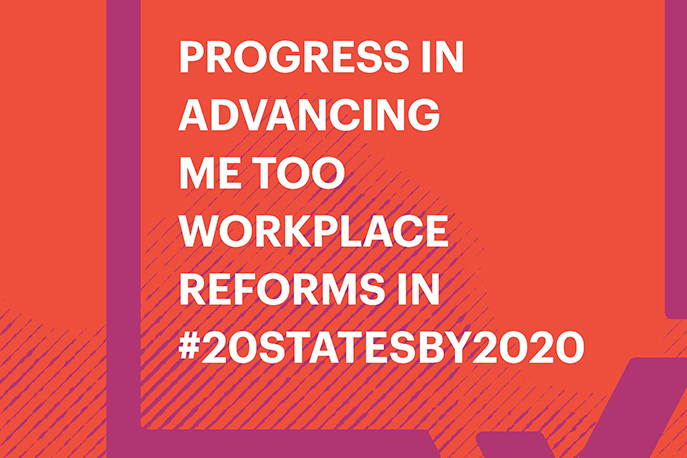A year after #MeToo went viral, state-level legislation strengthening workplace harassment laws have become a growing trend. So far, 15 states have enacted workplace policy reforms, all documented in a new report from the National Women’s Law Center (NWLC): Progress in Advancing Me Too Workplace Reforms in #20Statesby2020.
States are recognizing that employers should:
Require preventative anti-harassment training.
Prohibit nondisclosure agreements as a condition of employment or as part of a settlement agreement.
Expand protections to include independent contractors, interns, or graduate students.
Extend the statute of limitations for filing a harassment claim.
Over 300 state legislators from 40 states and Washington DC have signed the #20Statesby2020 pledge, promising to work with survivors and afflicted communities to build robust policy solutions. Preventative policies are essential to reducing harm in workplaces, schools, and assisted care facilities.
“To prevent sexual harassment at work, we must start by addressing it in schools since the treatment and behavior students experience from their peers, teachers, and administrators ultimately shapes workplace norms around gender, race, respect, and accountability.”
(NWLC, Page 4)
Sexual violence isn’t a bipartisan issue. It’s important that all state governments take an interest in the safety of their constituents at work and at school. Read the NWLC report to investigate the movement in your state. Additionally, a helpful resource is the Workplaces Respond to Domestic & Sexual Violence National Resource Center by Futures Without Violence, which supports survivors, employers, co-workers, and advocates.
At RALIANCE, we believe companies have a responsibility to promote a safe work environment that is committed to the well-being of all employees. We also help companies enact systemic cultural change which prevents sexual harassment, misconduct, and abuse. Learn more online.

